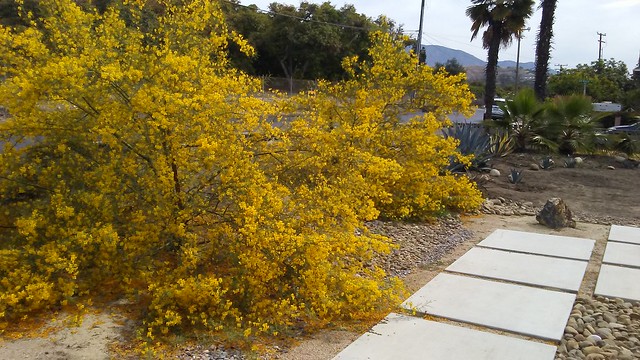by Sheryl Hamlin
The staff report of October 21, 2020 for Agenda item # 13 illustrates the seriousness of the California drought as represented by water use legislation.
US Drought Map Western States
The drought map shows how the drought has increased from October 2019 to October 2020. Click on each time frame to see the changes. Map: Click Here
History of Legislation
In 1990, California enacted “Water Conservation in Landscaping Act”, which required CDWR (California Department of Water Resources) to convene an advisory task force to develop a Model Water Efficient Landscape Ordinance. The legislation, called MWELO (pronounced “emweelo”) and stands for Model Water Efficient Landscape Ordinance, was first enacted in 2010.
Subsequently in 2015 with increasing drought conditions the model was made more stringent with respect to water usage for landscaping which accounts for 50% of water use in California. UCANR was actively involved in developing the original model as described here. According to some landscape consultants, the ordinance will become more stringent as time progresses.
Cities were allowed to modify their ordinances or adapt the State MWELO, which is what Santa Paula has chosen to do. Here are highlights of changes from the staff report:
-New construction projects with an aggregate landscape area equal to or greater than 500 square feet or more and rehabilitated landscape projects with an aggregate landscape area equal to or greater than 2,500 square feet (with exceptions) are subject to the requirements of the MWELO. This applies to projects that require a permit, plan check, or design review.
-Dedicated landscape meters or submeters are now required for residential landscape projects over 5,000 square feet and for commercial landscape projects 1,000-5,000 square feet. (Commercial projects exceeding 5,000 square feet may require separate water meters pursuant to Water Code section 535.)
-Qualifying landscape projects must have pressure regulators and master shut-off valves.
-All irrigation emission devices used in qualifying projects must meet national standards to ensure high efficiency sprinklers are installed.
-Friable soil (easily crumbled or loosely compacted soil) is required for qualifying projects in planted areas to maximize water retention and infiltration.
-The maximum amount of water that can be applied to landscape is reduced from 70% of the reference evapotranspiration (ETo) to 55% for residential landscape projects and 45% for non-residential projects. This will reduce the landscape area that can be planted with high water use plants.
-Median strips cannot be landscaped with high water use plants.
-Projects with landscape areas under 2,500 square feet may comply with the MWELO requirements by conforming to less restrictive prescriptive measures outlined in the MWELO. This is meant to simplify the process for smaller projects.
-Landscapes under 2,500 square feet that are irrigated entirely with graywater or captured rainwater are subject to less restrictions and only some of the prescriptive measures.
Drought Resistant Examples
Click here for pictures of elegant drought resistant landscapes.
Council Discussion
Council Member Sobel asked about grey water and if there would be guidelines.
The motion to adapt the DWR MWELO standards by reference was approved.
To watch the discussion, click here.
To read about the author, click sherylhamlin dot com
Get CitizensJournal.us Headlines free SUBSCRIPTION. Keep us publishing. – DONATE





Looking at some of the examples I see high-water-use grass/sod plantings when various crushed rock or gravel could have been used. The Huntington Gardens has a stunning xeroscape area. I’d suggest contacting them and have the administration consider a tour of the desert section of the Huntington Botanical Gardens.
Which pictures?